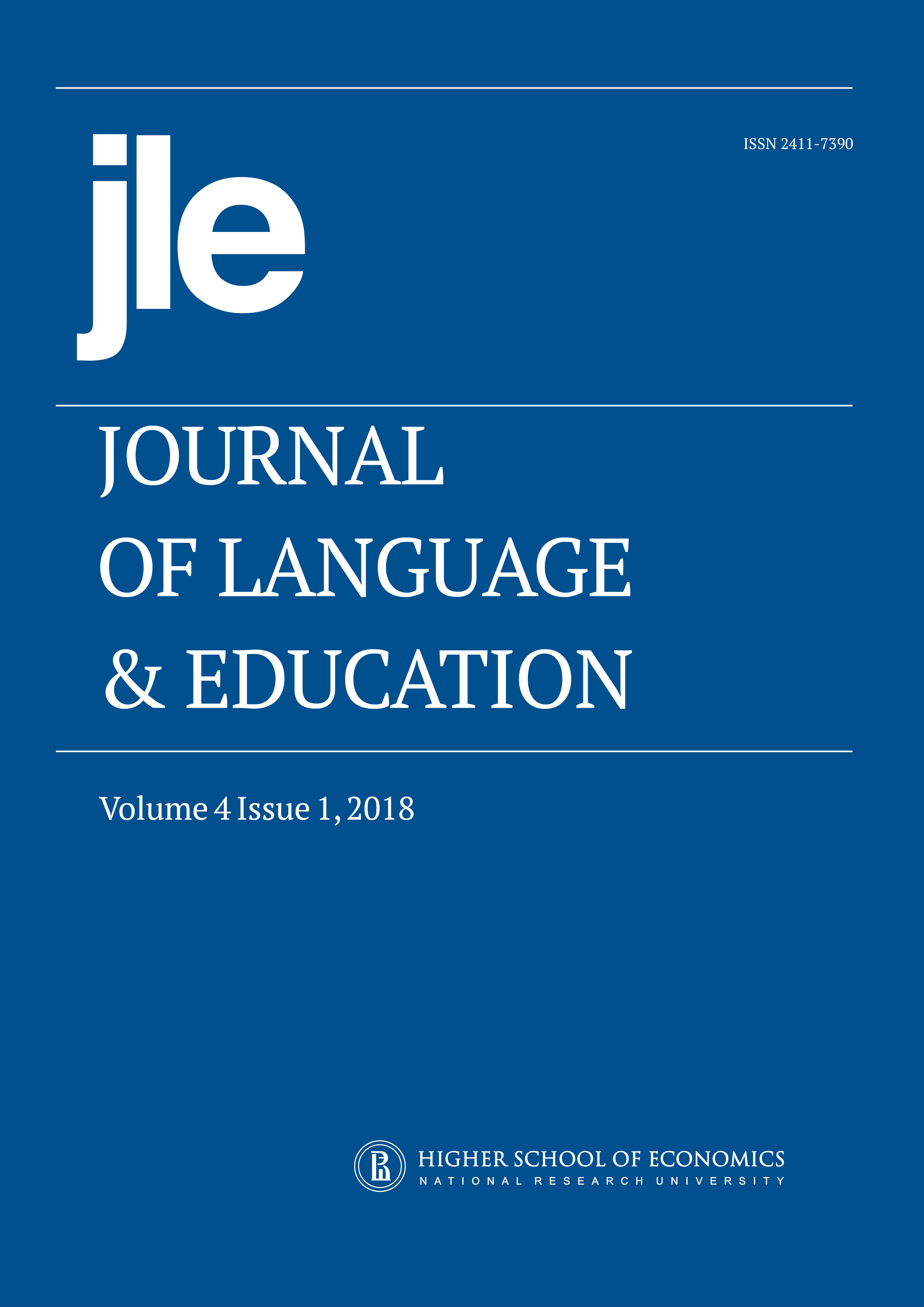Альтернативы нет! Восприятие учащимися обучения на втором языке в Ливане
Аннотация
С 1997 года дети в ливанских государственных школах обучаются по большей части на английском или французском языках. В частных школах, в которых обучается 70% детей, еще реже используется арабский язык, являющийся родным для детей. Во многих странах образование на родном языке рассматривается как гарантированное право, однако в Ливане считается само собой разумеющимся, что дети обучаются на английском или французском языках. Были собраны письменные мнения семидесяти пяти студентов университетов, которым был задан вопрос о языке в образовательной политике. Результаты тематического анализа были обсуждены с фокус-группой, состоящей из восьми студентов. Полученные результаты свидетельствуют о широком признании данной политики, отчасти основанной на лежащем в ее основе убеждении в непригодности арабского языка в XXI веке и представлении о том, что ливанцы в культурном отношении предрасположены к изучению языков. Используя концепцию языкового империализма, мы анализируем полученные результаты со ссылкой на французский колониализм и глобальное распространение английского варианта среднего образования. Мы также подвергли критическому осмыслению само определение идеологии, чтобы изучить изменения дискурса в пользу политических решений в отношении роли языка в образовательной политике Ливана, что отвечает только интересам ливанской элиты, хотя данная позиция была также поддержана и студентами, которые видят эмиграцию как свое единственное будущее.
Скачивания
Авторы, публикующие статьи в журнале, соглашаются с условиями политики авторских прав.



